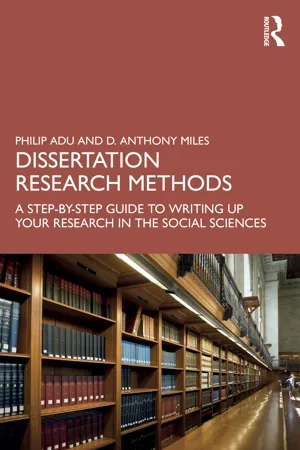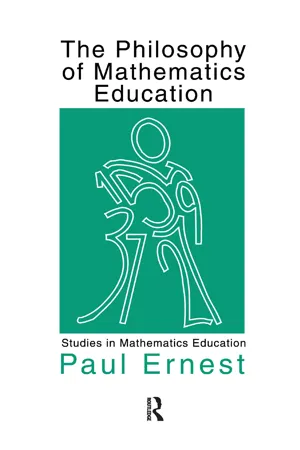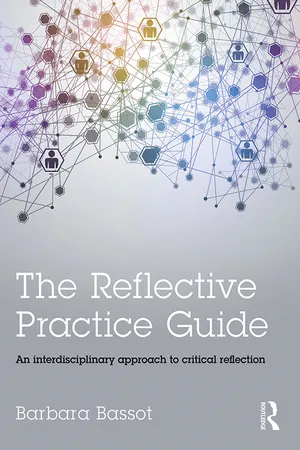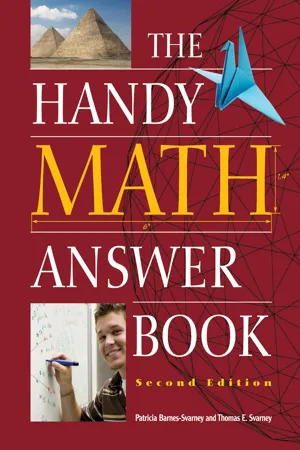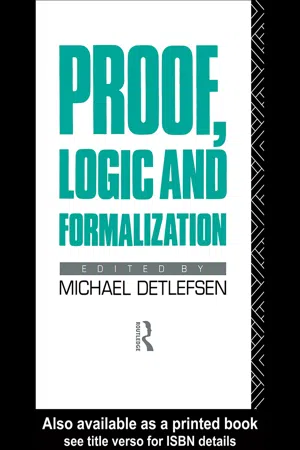Mathematics
Assumptions
Assumptions are statements that are taken to be true without proof or evidence. In mathematics, assumptions are often made to simplify a problem or to establish a starting point for a proof. However, it is important to be aware of the assumptions being made and to check that they are valid.
Written by Perlego with AI-assistance
Related key terms
1 of 5
5 Key excerpts on "Assumptions"
- eBook - ePub
Dissertation Research Methods
A Step-by-Step Guide to Writing Up Your Research in the Social Sciences
- Philip Adu, D. Anthony Miles(Authors)
- 2023(Publication Date)
- Routledge(Publisher)
assumption when developing research proposals or reports, (b) making and justifying Assumptions, (c) Assumptions in qualitative research, (d) the general types of Assumptions, (e) the Statement Grid for Assumptions, and (f) the significance of participant bias on Assumptions.Definition of Assumptions
Assumptions can be defined as things that are somewhat out of your control, but if they disappeared your study would become irrelevant (Hubbard, 1973 ; Simon, 2011 ; Simon & Goes, 2013 ). For example, if you are doing a study on the middle school music curriculum, there is an underlying assumption that music will continue to be important in the middle school program. If you are conducting a survey, you need to assume that people will answer truthfully. If you are choosing a sample, you need to assume that this sample is representative of the population you wish to make inferences to (Hubbard, 1973 ; Simon, 2011 ; Simon & Goes, 2013 ). Another definition of an assumption is an unexamined belief that the researcher brings to the study and that is accepted as being valid (Bryant, 2004 ; Webster, 1998a , 1998b ).Assumptions are statements that are taken for granted or considered true, even though they have not been scientifically tested. Think of Assumptions as principles that are accepted as being true based on logic or reasons but without proof or verification. Assumptions provide a basis for the development of theories and research instruments and therefore influence the development and implementation of the research process (Happen, 2008 ; Patidar, 2010 ; Sampson, 2010 ). Also, Assumptions must clarify aspects of the study that are believed but cannot be proven to be true. Furthermore, only include Assumptions critical to the meaningfulness of the study. The researcher must describe the reasons why the Assumptions were necessary in the context of the study (Terrell, 2016 ; Lani, 2018 - eBook - ePub
- Paul Ernest(Author)
- 2013(Publication Date)
- Routledge(Publisher)
5 Therefore the Assumptions are beliefs, not knowledge, and remain open to challenge, and thus to doubt.This is the central argument against the possibility of certain knowledge in mathematics. It directly contradicts the absolutist claims of the foundationist schools of thought. Beyond the foundationist schools, it is considered to be an unanswerable refutation of absolutism by a number of authors.[T]he absolute truth point of view must be discarded. The ‘facts’ of any branch of pure mathematics must be recognised as being Assumptions (postulates or axioms), or definitions or theorems… The most that can be claimed is that if the postulates are true and the definitions are accepted, and if the methods of reasoning are sound, then the theorems are true. In other words we arrive at a concept of relative truth (of theorems in relation to postulates, definitions, and logical reasoning) to replace the absolute truth point of view.(Stabler, 1955, page 24).What we have called pure mathematics is, therefore a hypothetico-deductive system. Its axioms serve as hypotheses or Assumptions, which are entertained or considered for the propositions they imply.(Cohen and Nagel, 1963, page 133).[W]e can only describe arithmetic, namely, find its rules, not give a basis for them. Such a basis could not satisfy us, for the very reason that it must end sometime and then refer to something which can no longer be founded. Only the convention is the ultimate. Anything that looks like a foundation is, strictly speaking, already adulterated and must not satisfy us.(Waismann, 1951 , page 122).Statements or propositions or theories may be formulated in assertions which may be true and their truth may be reduced, by way of derivations to that of primitive propositions. The attempt to establish (rather than reduce) by these means their truth leads to an infinite regress. - No longer available |Learn more
The Reflective Practice Guide
An interdisciplinary approach to critical reflection
- Barbara Bassot(Author)
- 2015(Publication Date)
- Taylor and Francis(Publisher)
7 Bringing Assumptions to the surface‘We don’t see things as they are, we see things as we are.’ (Cicero)IntroductionIn this chapter we will explore the area of Assumptions including how they come about and why as professionals we need to understand some of the Assumptions we might be making. We will examine different levels of Assumptions and discuss some theoretical perspectives that can help us to understand more about how we can challenge our ways of thinking. The chapter will conclude with a model that can be used individually and in supervision to help us to reflect on how we can begin to overcome some of our limiting Assumptions.What are Assumptions and how do they come about?If we look up the word assumption in a basic dictionary we would find it defined as something that is accepted as true or certain to happen but is without proof. Assumptions are ideas and thoughts that evolve over time and become things that we then take for granted. They become so ingrained in our daily thoughts and actions that we no longer question their validity or even think about them. In some circumstances Assumptions are valuable as they prevent us from needing to think about every aspect of our lives in detail. Sometimes these kinds of Assumptions are referred to as working hypotheses. For example, if we had to think closely about what to do each time we did something as routine as making a cup of tea, life would be exhausting! Instead, we draw on our past experiences and make it somewhat automatically. However, other Assumptions are not helpful, as they can lead to unconscious bias in our practice (Moss-Racusin, Dovidio, Brescoll, Graham and Handelsman, 2012).Often, our Assumptions are based on our personal values. Values are things that are important to us – in a literal sense they are things that we value. Our personal values are deep rooted and will often stem from our upbringing and can include things like, honesty, hard work and the importance of family. Personal values, therefore, reflect the social context of the individual and vary from person to person. - eBook - ePub
- Patricia Barnes-Svarney, Thomas E Svarney(Authors)
- 2012(Publication Date)
- Visible Ink Press(Publisher)
FOUNDATIONS AND LOGIC
What are the foundations of mathematics?The foundations of mathematics include how to formulate and analyze the language (you have to “speak” the right mathematical language to make meaningful mathematical statements), axioms (a statement accepted as true without proof), and developing logical methods in all mathematical studies. The most basic mathematical concepts in the foundations include numbers, shapes, sets, functions, algorithms, axioms, definitions, and proofs.Why do so many philosophers study the foundations of mathematics?There are three underlying reasons why philosophers often study the foundations of mathematics. First, these foundations have always been a part of scientific thought, with the abstract nature of mathematical objects offering unusual and often unique philosophical quandaries. Second, the subject offers a high level of technical sophistication, allowing philosophers to develop connections between models and patterns, laying the groundwork for many other sciences. And finally, the foundations of mathematics provides ways for philosophers (and mathematicians) to try out general philosophical doctrines in a specific scientific context.What is logic?Although it closely resembles mathematics (and is sometimes used as a basis for it), logic is a branch of knowledge or inquiry that is separate from mathematics and the sciences, but is still used by both fields in various ways. Simply put, logic is described as the systematic study of well-founded inference, in which there is a definite distinction between logical validity (also known as the formal properties of the inference process) and truth. This also means that a true result may come from an invalid argument (see below for definition of an argument). For example, “all cats are cute; Fluffer is a cat; therefore, Fluffer is cute,” is a valid inference; whereas, “all cats are cute; Fluffer is cute; therefore, Fluffer is a cat,” is an invalid inference, even if Fluffer really is a cat. - eBook - ePub
- Michael Detlefsen(Author)
- 2005(Publication Date)
- Routledge(Publisher)
Section III are not in place—there is rather more phenomenological work yet to be done here. The major block is that philosophers have not yet secured a sufficiently powerful and subtle sense of the understanding. Mainly I will consider some very simple (but nevertheless not easy) examples, hoping that they might prove suggestive to the reader. But let me be just a bit clearer about what the thesis is.Given a mathematical proof. Typically this proof will depend on theorems or lemmas that have been proven elsewhere. The thesis being considered here in Section III is that, typically, if we trace backwards we will find that, in the end, there have been no unproven Assumptions. I actually mean by this something which might look weaker, but, if you think about it, is not— there is nothing in the proof that needs to be proved. Of course what I have in mind is that there are no postulates underlying mathematical proof. Mathematical demonstration is, typically, not founded on unproven Assumptions. Of course, it is sometimes of interest to a mathematician to derive consequences of, say, the postulates of mathematical ring or field theory (or whatever). So one can consider, perhaps, that here, at least, the mathematician is proving something on the basis of postulates. But is this so? It might be thought that postulates framing natural numbers or sets or calculable functions might somehow be evident on the basis of certain semi-mental entities usually called “concepts.” And this is not implausible. But the concepts of mathematical groups, rings, fields, etc., emerge from the isolation of significant mathematical structures and really cannot be thought of as somehow available in advance through concepts giving a basis on which axioms characterizing those structures would be evident. But what is important from our present point of view is that the proof that such and such follows from, say, the field axioms is not the same as a formal derivation from the axioms (gapless formal-logical derivations are extremely rare and usually far too long) but, rather, a proof that either there is a formal derivation or else a proof that the theorem follows from the axioms, as in Hilbert’s Foundations of Geometry. Such proofs will typically not contain unproven Assumptions— Assumptions in need of proof, or so I claim. Even in the case that what is at issue is a formallogical system, a given formallogical derivation will not count as a proof of its own existence; rather, that it is a correct formallogical derivation is something that must be demonstrated, and certainly not by a formal-logical derivation! By what then? by a series of observations that lets us see/find that it is a formal-logical derivation of a sentence from the axioms according to given rules of inference. Where there is a formalaxiomatic system, the genuinely mathematical theorems and proofs are not formal derivations from the axioms (generally, mathematicians do not want to see such things!) but rather proofs that there exists such and such a formal derivation of such and such from such and such axioms according to such and such rules. Far from formal derivations being adequate to represent proofs, they themselves as it were need proofs—need to be proved to exist!8
Index pages curate the most relevant extracts from our library of academic textbooks. They’ve been created using an in-house natural language model (NLM), each adding context and meaning to key research topics.
